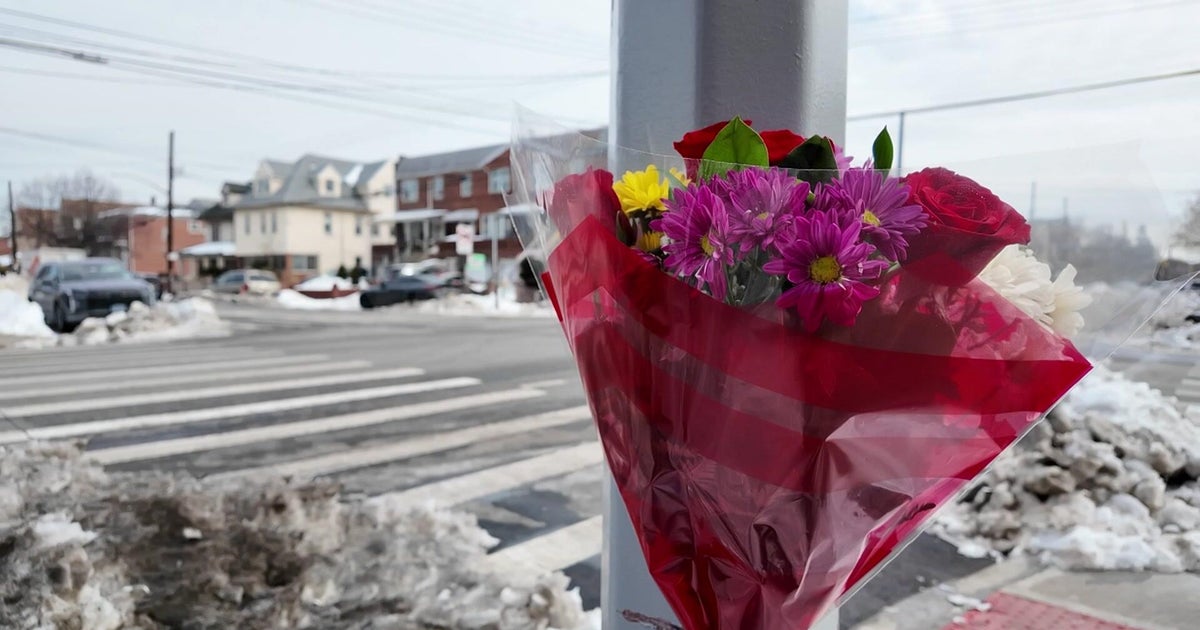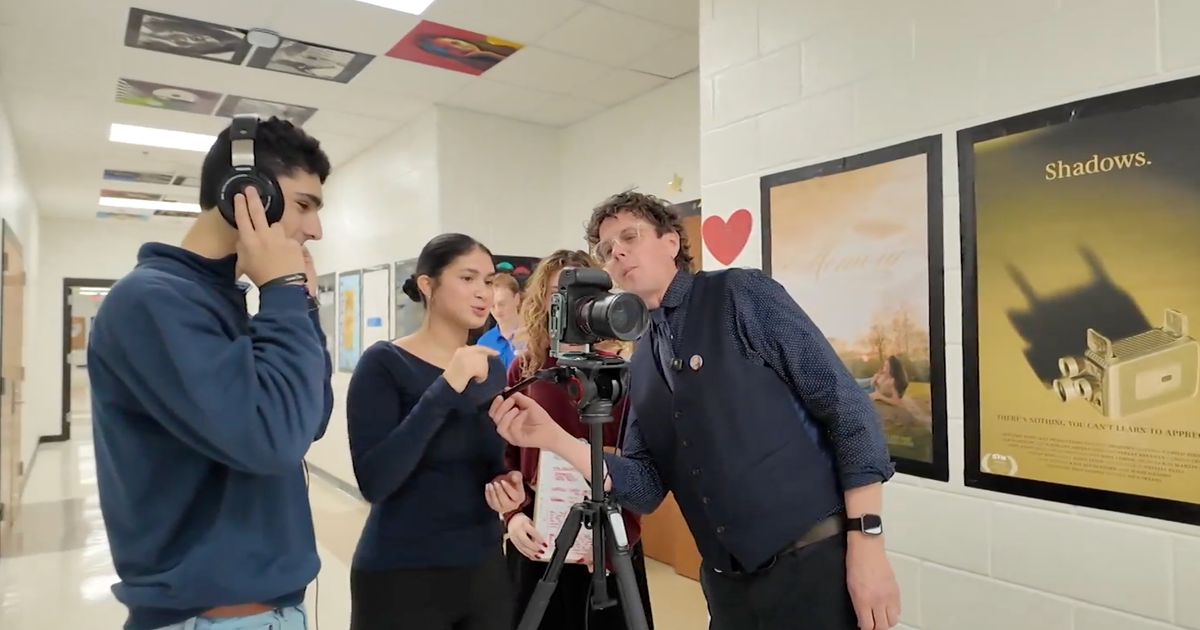I-Team Deadly Voyage
(9/30/2009)
Three grueling days after leaving Nassau for what was supposed to be a four hour trip to Miami aboard a smuggler's boat, Chandeline Leonard fell asleep inside the vessel's crowded cabin with her eight-month old daughter Luana resting on her chest.
As the boat made its way to what she prayed would be a better life in Florida -- and away from the poverty and despair of her homeland in Haiti -- Chandeline began to dream a most ominous dream.
In her dream she could see two little girls standing in a graveyard. They wore white dresses and stood at the end of an open grave, tossing red flowers into the man made hole.
Before Chandeline could see inside the grave herself, her husband's voice woke her from her sleep.
"When I wake up I hear Lucsene call me, `Come Chandeline, come. Water! See, water! come,'" Leonard recalls.
At the back of the cabin, near where the propellers of the twin inboard motors were churning, water was beginning to flood in. Chandeline's husband, Lucsene Augustin, could see the shock on the boat captain's face and knew the situation was dire.
"After two or three minutes one engine stopped," Lucsene says. "Now they get more water [coming into the cabin]. A few minutes later the second engine stalled and suddenly the boat started taking on even more water."
It was a little after 11 pm and as scared Haitians scrambled onto the deck of the ship, Chandeline remembers the boat's captain giving one final order: "He was saying, `Everybody pray! Everybody pray!' And people praying and screaming and praying."
======
On May 9, 2009, more than 25 Haitians crowded onto a boat designed to carry only half their number. Under a full moon, they left Nassau for what they were told would be a four hour journey to a new and better life in Miami.
But four days later, at least nine of them died when their boat capsized. The rest were rescued off of Palm Beach after spending 15 hours in the water.
Almost immediately officials suspected the vessel was part of a human smuggling ring, but little has been revealed about what happened during those four harrowing days, as none of the survivors have spoken publicly – that is, until now.
CBS4 News interviewed seven of the survivors. Many of the survivors were initially afraid to speak, fearing reprisals against family members in Haiti by members of the smuggling ring who remain at large.
But ultimately those aboard the boat -- a boat with no name -- decided they needed to speak not just for themselves but for those that will never be able to speak again.
========
The story of this deadly voyage starts in Nassau. For years Haitians fleeing the oppressive poverty of their homeland have been sneaking into the Bahamas to find work so they could send money home to their families in Haiti. But in the last couple of years, Bahamian officials have been cracking down on Haitians living illegally in their country. For the Haitians it leaves them with two choices -- return home or hire smugglers to bring them into the United States.
For Chandeline and Lucsene their decision was made for them when Lucsene lost his construction job in Nassau.
"We can't eat, we can't pay rent, we can't pay light bill, we can't buy even milk for my little girl," Chandeline says. "We see things very, very, very difficult for us; We can't go back in Haiti, if we go back in Haiti nothing for us to do still in Haiti."
Lucsene said he knew someone who knew someone who was selling spaces on a boat headed for Miami. The smuggler's fee: $4,000 a person. For weeks the couple argued about whether they should go. When they agreed, they sold everything they owned and borrowed money from relatives. Lucsene even signed over the title to his truck to the smugglers.
"I sold my clothes, my shoes," Chandeline says.
Like Lucsene and Chandeline, many of those who went on the boat needed to borrow money from relatives in Haiti. It is common for Haitian families to pool their money so that one family member can come to the United States, get a job and then send money home.
But they didn't need to worry about sending the money to the Bahamas because the smugglers had operatives throughout both countries.
"I think that this smuggling operation is bigger than we have seen," said Regina de Moraes, an attorney representing many of the Haitian survivors. "I believe there are different entities that came together at different points to make this work and it is bigger than we realize. There had to be an entity in Haiti to pick up the money from the victims' families. There was another entity in the Bahamas. In the Bahamas itself I think there were at least four or five different smugglers."
Neither Chandeline nor Lucsene wanted to take baby Luana on the boat. They tried to find someone they could trust who was going back to Haiti to take the infant to Chandeline's mother. But the Captain of the boat, Jimmy Metellus, convinced them it wasn't necessary. He said since the baby was so tiny he wouldn't charge them for her to come along. And he assured them there would only be fifteen people on the boat and the trip would last less than four hours.
The smugglers kept all of the details of the trip a secret until the last possible minute. With little notice, a car arrived to take Chandeline, Lucsene and baby Luana from their home to a neighboring dock.
When they arrived at the boat it was shrouded in darkness as the smugglers sought to take off without anyone seeing them. Chandeline and Lucsene were the last ones to board. When Chandeline first climbed into the cabin there was nowhere for her to sit. There was no light, so she couldn't be certain, but she suspected there were more than fifteen people on the boat.
Eventually someone, seeing Chandeline was carrying a baby, offered her a place to sit.
Within two hours the boat ran out of fuel and began to float dead in the water. They drifted all night and well into the next day. As temperatures climbed inside the cabin, so did the uncertainty. Chrisla Antoine says at least three of the women on the boat were pregnant, including one woman who was due to give birth in a few weeks.
"She was vomiting, it was so hot on the boat she was vomiting everywhere," Chrisla remembers. "That situation really hurt me. There wasn't any food or water or anything to give her."
The light of day also brought the reality of just how many people were on the boat. Chandeline says she counted 28 people. Others say the number was more than 30.
Eventually a search plane spotted them. But it wasn't the Coast Guard or the Bahamian military. It was a search plane sent out by the smuggling ring. Apparently when the ring's leaders lost contact with the boat, they sent out their own search plane to look for it.
Not long after the plane made several low passes over the boat, a second boat arrived with fuel, and led the stranded vessel to Bimini. The Haitians were brought ashore and stashed inside an abandoned house the smugglers had arranged.
"It was not a good house," says Jocelyn Difficile. "It was a dirty house. No bed, nothing, nothing. The house looked like nobody lived in the house."
The smugglers dropped off some food and water. They even provided a little milk for baby Luana. The Haitians were told to remain inside. The group remained there for at least 24 hours. The next night, under the cover of darkness, the Haitians were loaded back onto the boat. Only this time there seemed to be even more people on board. The smugglers had sold another place or two on the boat in Bimini.
When the boat finally left Bimini and headed for Florida, Chandeline placed baby Luana on her chest and drifted off to sleep. That's when she dreamt of the two girls tossing red flowers into an open grave.
The next thing she knew the boat was sinking.
As water began to fill the cabin, everyone scrambled onto the deck of the ship. Metellus and his first mate began throwing life vests onto the deck for people to grab. But there were perhaps a dozen vests. Those that did grab them weren't sure how to put them on.
Lucsene said the only time in his life he had ever seen a life vest was in the movie Titanic.
Lucsene took Luana from Chandeline, who had never been in the ocean before and did not know how to swim.
"When I take Luana I don't know what I am supposed to do," Lucsene says. He wondered where he should go and what he should do.
Metellus, the boat's captain, told Lucsene to take the baby and climb to the highest point on the boat hoping it would stay above water. But as the terrified Haitians ran from one side of the boat to the other, it quickly capsized, throwing Lucsene into the pitch black sea.
"When I go to the top, the boat start moving so hard, it starts moving, with Luana in my arms, I jump with Luana in my arms," he says. "When I jump in the water with Luana I go deep in the sea. Luana slide [from] my arms. When I tried to go up looking for Luana, I'm screaming, `Help me!' I don't see Luana I start crying. I'm trying to see if I see Luana, I don't see her."
Lucsene's screams were just one in a chorus that filled the night. Like the 16-year-old girl who called out for her parents back in Haiti.
"Mommy, Daddy, help me, I'm dying," the teen shouted.
"There was nothing we could do" for her, Chrisla says, shaking her head.
And there was the woman who screamed she was being attacked in the water for her vest. It was dark and no one was sure what was happening, but after a few minutes the woman stopped screaming and the man closest to her -- a Jamaican who had boarded the boat in Bimini -- was now wearing a life vest.
The woman, whose remains have never been identified, died. And unlike the others who died, the survivors say her face was badly beaten.
But of all the sounds heard that night, the sound Wisler Santil says he will never forget is the knocking that came from inside the boat after it capsized. Rapping his knuckles hard against the wooden arm of his chair, Wisler says, "Like this, `Open, open for me.'"
It is not known how many people were trapped inside the cabin, unable to find their way out of the overturned boat. All that is known is that the knocking and cries for help lasted for several hours until finally the boat sank.
The rough waves and currents had scattered the survivors in all directions. Fifteen hours later, a fishing boat happened upon Lucsene and two other survivors.
Lucsene collapsed on the deck of the fishing boat unable to move. All he could do was cry.
The Coast Guard launched a search and rescue operation picking up a total of sixteen people. But it came just a few minutes too late for one.
As he floated in the water, clinging to a piece of debris, Wisler Santil spotted another survivor a short distance away. The man, whose name Wisler does not know, had no life jacket and had been floating and treading water since the boat capsized.
"`He said I can't do nothing. I feel tired,'" Wisler recalls. "I say, `Keep, keep, keep, keep swimming! Keep swimming!' He said, `I can't do nothing more. I can do nothing more.'"
Wisler tried to swim toward the man to help him, but the waves kept them apart. Instead he kept imploring the man to hold on.
"I said, `Try to do something more, try to do something more. God can send somebody to help us.' He said, `I can do nothing more.'"
Wisler said he watched as the man just disappeared under a wave and never came back up.
Thirty minutes later Wisler spotted a Coast Guard helicopter.
"I see the Coast Guard coming, I say, `Wow man, if this guy can stay for 30 or 40 minutes he'd be safe,'" Wisler says, shaking his head at the memory.
The last person found by the Coast Guard and brought aboard the cutter was Chandeline. She had fallen into the water and separated from Lucsene almost immediately. She prayed that by some miracle he would be able to keep their baby alive.
"When I reach the big boat I see Lucsene," Chandeline remembers, her eyes welling with tears. "He says, `Chandeline you are a survivor.' I say, `Yeah.' Now he starts crying. I say, `Where is Luana?' He start crying and I think Luana is not a survivor."
Chandeliene said she didn't want to believe her child was dead and began pleading with the rescuers. Then she saw the proof.
"I start crying. I say, `I have my baby with me.' I see they come with a little girl with one black bag."
It wasn't until she saw the body bag that she knew Luana was gone.
"She so nice baby and a good baby," Chandeline says, as tears are now streaming down both her face and Lucsene's.
"When I went on the boat with her she touched my face and kissed me and I talked to her through the night. I say, `Give me a hug,' She give me a hug. I say, `Kiss me.' She kissed me.'"
Asked if she feels guilty she nods and says: "Yes I feel guilty. I feel guilty. I tried to help her get a better life too."
She believed the only chance Luana would have at a decent life was here in the United States.
After being rescued, the Haitians were all kept together which made identifying the smugglers difficult. On the Coast Guard cutter Metellus told everyone to say the captain had died. They were terrified the rest of his crew in the Bahamas and Haiti would hurt their families if they identified Metellus. Eventually their anger overcame their fear.
"I think he a bad guy because he don't let me bring no water, no food, nothing for the little girl," Chandeline says. "And then he bring more people [than he said he would on the boat]."
Like the others, Chandeline says she now realizes the smugglers care about one thing.
"They want the money," she says. "They worry about money; they don't worry about your life."
And she has a message for others thinking of making the journey. No matter how bad your life may seem, she says, it can always get worse.
"You need to stay where you are," she says. "If you can come with visa, come. Don't catch the boat."
After being held by immigration officials for four months, Lucsene and Chandeline were released and allowed to bury baby Luana here in Miami. Because President Obama granted all Haitians temporary protective status after the earthquake earlier this year, Chandeline, Lucsene and the other survivors will be allowed to remain in the country.
As for the captain of the boat, Jimmy Metellus, he pleaded guilty to nearly two dozen counts of human smuggling, including nine counts of human smuggling resulting in death. In return for his plea, prosecutors agreed not to seek the death penalty against him. He will be sentenced next month.
As for the survivors, although they didn't know each other before climbing onto that boat, they are now like a family, staying in close contact with one another. They share an experience few others could understand.
"Even when I'm on my bed sleeping I feel like I'm in the boat," says Chrisla, staring at the floor. "This is never going to leave me. Never."







